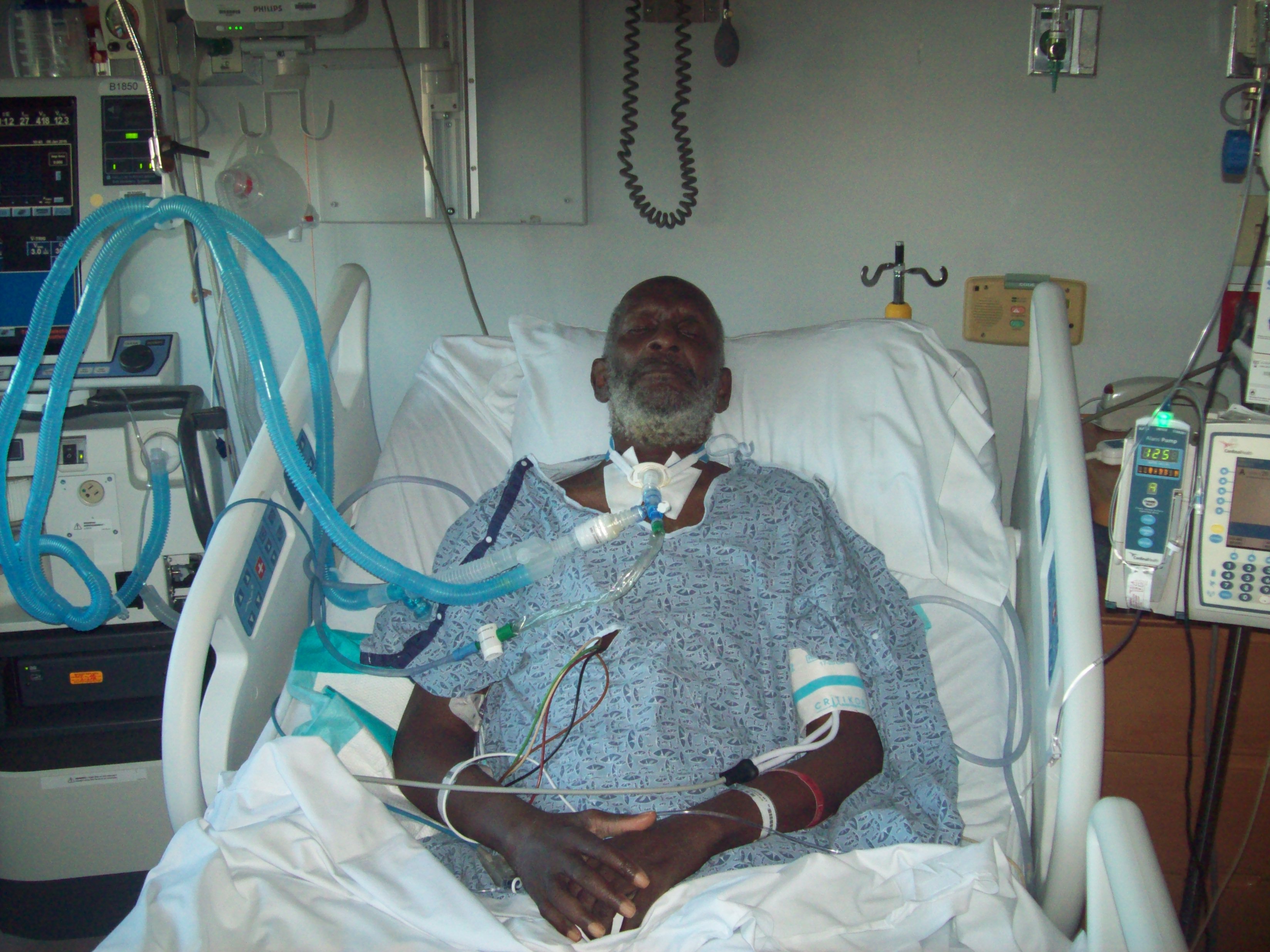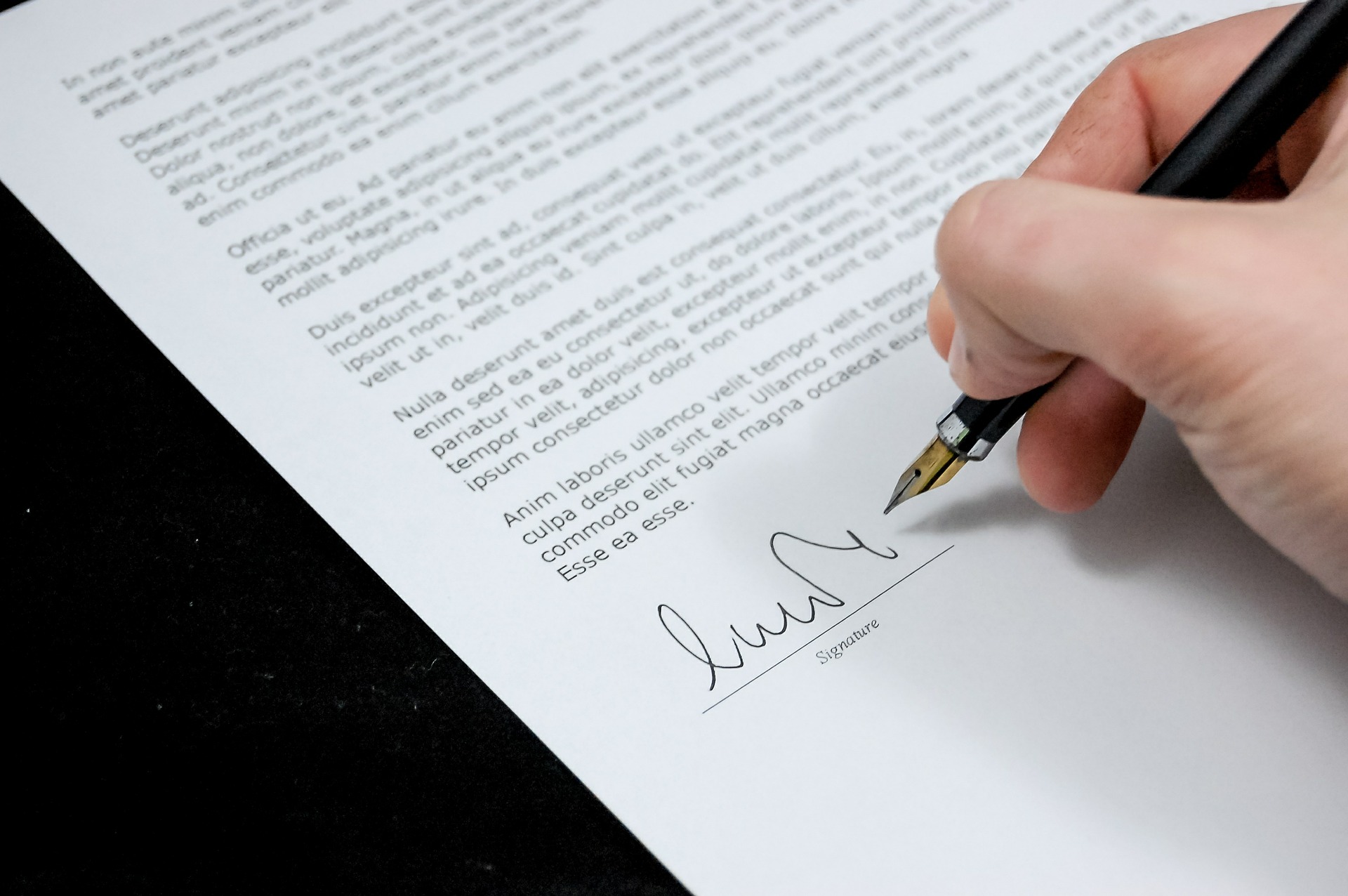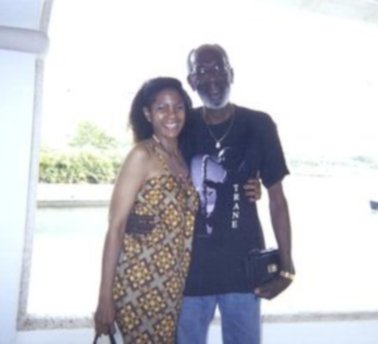10 Ways to Exit

thought of "10 Ways to Exit" and make it easier for those you leave behind because of what I experienced with my husband. He was a wonderful man with whom I spent many years. From my physical point of view, my husband died too soon. His death broke my heart. From a spiritual perspective, our plan unfolded accordingly.

Clement Edwardo, Hill, II,my husband in hospital. He never came out. by Allison L. Williams Hill
10 Ways to Exit and Make it Easier for the Ones You Leave Behind
My husband owned land in a foreign country. His land was his project. However, I did not request updates on his progress with his
project.
My involvement with it was designing structures for it. First off, communicate with each other. When planning to marry, or other, discuss finances and assets.
1. Always communicate with each other. This may be a “Duh” item. We did not make the time because we thought we had time.
2. Make each aware of important documents generated before your union, whether with another spouse, partner, or alone. Both parties will know what to do with their estates – property, bank accounts, etc., and who will be responsible. Have written and notarized papers that document your agreement. If changes occur later, revise the documents to reflect them. It is vital to have intentions documented. Hearsay is unacceptable in a court of law.

A legal document
3. Create living wills. To have plans in place that cover both of you is sound advice. My husband was incapacitated while in hospital. It was unexpected. We were married; I had extra, sealed marriage certificates from where we were married just in case I needed to distribute them. I went through probate court to acquire health and financial proxies. The hospital asked for proof of my relationship with my husband, and I provided the sealed document from the court. It was not enough to be married to my husband.
4. Create last wills and testaments and have them notarized. As my husband’s will was not notarized, and the executors and the attorney were not living, I had to go through the probate court process as an omitted spouse. The submitted will was created several years before we met. He never updated it.

A view of Josiah's Bay, Tortola from our home that no longer exists. by Allison L. Williams Hill
5. If either of you owns a property, determine what happens with the property should a spouse pass before the other. My husband owned land, and it was recorded in his name. I went through legal processes in court systems in two countries, including hiring a surveyor, removing a restriction from a parcel, and an attorney. The process was protracted because of the coronavirus impacts. However, that served me well as I was getting educated during the process.
6. Ensure that your selected executors were asked and agreed to implement the responsibilities of the deceased’s desires. If the executor transitions, get the consent of new people. If they accept, renew the will with their particulars. I knew that some of my husband’s executors were not living. However, I had to search for the other executor who was also deceased. Save the survivor’s time by keeping this part of the will updated. Please remember that they are grieving you are leaving their world.

7. Maintain essential documents in a safe and accessible place. Few people need to know where they are. Make hard copies and save them to jump drives and the cloud. Include bank account numbers, addresses to the bank location or locations, insurance policies and companies, and phone numbers. A list of charitable contributions would be helpful so that the executor can inform them.

Stacked and organized magazines by Allison L. Williams Hill
8. Always declutter is the 8th of 10 Ways to Exit. When people depart, others inherit the responsibility of clearing their belongings. Provide instructions if the belongings extend beyond the contents in the will. Distribute or discard them as requested. Search organizations that can benefit and provide contact information. Estate sale businesses can handle this for a percentage of sales. The executor manages the balance according to the deceased's wishes.

A Couple by Allison L. Williams Hill
9. When my husband felt changes in his body, he talked out loud to remember facts about his life. I regret not recording his voice. What I would not give to hear it again and again. But that is what we have recorders for. If the two of you plan to kick back on any morning, still in jammies, talk and record. It could be about your time together, the wedding, planning, the wedding day and its activities, etc. It could be about anything. Tape your comments while watching a movie in a genre both of you like. You can do many of these. Keep the best that reminds you of why this is the best person to have chosen to spend the rest of your life with.

Single Lens Reflex Camera by Allison L. Williams Hill
Cameras are used for documentation, prints or digital. Insert prints in an album. Upload shots in a cloud account or on a flash drive.
10. Photographs are easy to take now. While many people pose for photos, I attempt to capture spontaneous, impromptu minutes during activities. I took pictures of a cousin at a family gathering while she washed vegetables. I took photos of the family preparing breakfast, stretching, and talking. The activities tell stories and may help one recall some of what was involved in creating the day. These visuals are an asset to creating memorial slide shows.

Clem and me on Barbados for our honeymoon.
We would do all that we can for the ones we love. Death affects people in different ways. We are mortal. To ignore this part of our journey is a bit immature. Some people don’t construct wills because they fear acknowledging their mortality. Being in a relationship with a loved one, people who have children, and family in general requires planning for those left behind. Planning and preparation take time; it is not a last-minute effort.
Links

The above meditation mandala will be available soon.


















